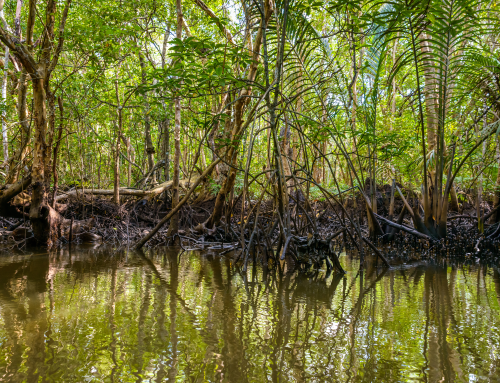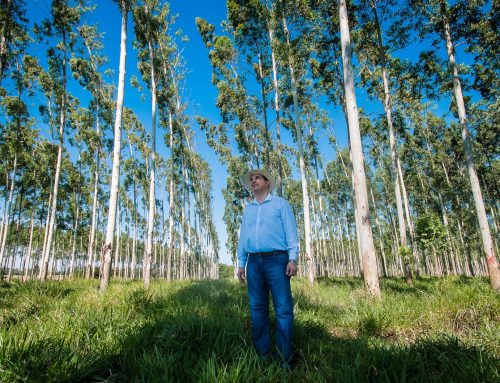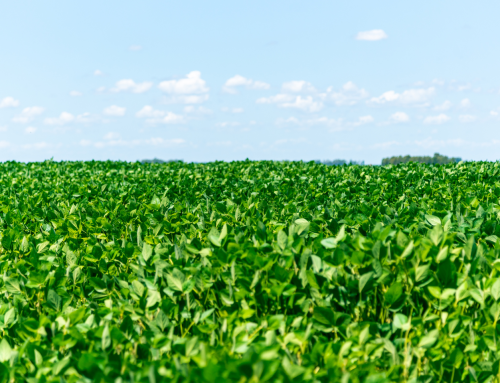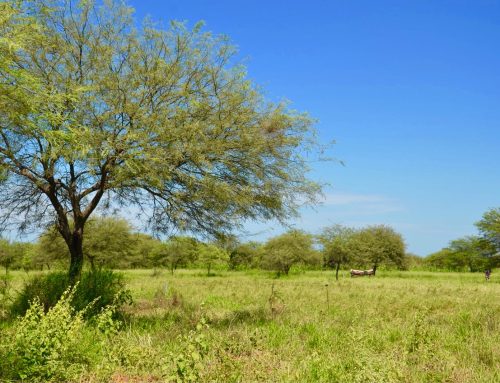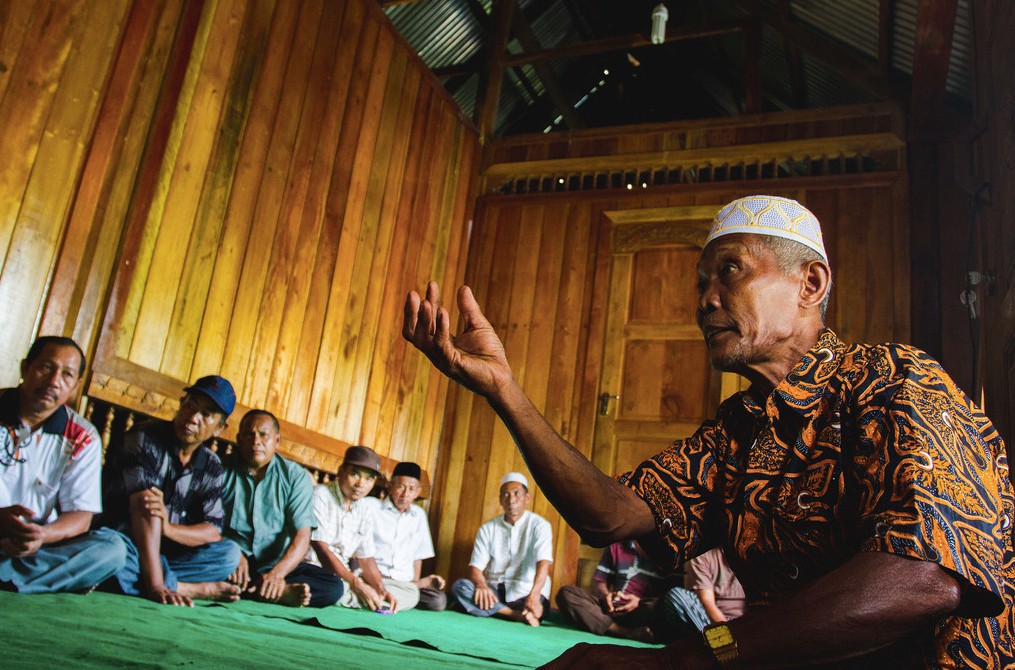
A vital part of the economy and providing livelihoods for millions of people, Indonesia’s vast palm oil industry is also tied to high rates of deforestation. Government leadership will be key to creating the conditions for sustainable palm oil production in Indonesia, which is one of the world’s largest suppliers of this commodity found in almost half of all products in our supermarkets. Photo: © UNDP-Indonesia
Sustainable commodities become possible when governments take the lead in developing the enabling conditions for sustainable agriculture, improved livelihoods and protecting valuable ecosystems. With the rapidly growing Indonesian palm oil sector increasingly in the spotlight, we chat with Indonesian researcher, Eusebius Pantja Pramudya, about his recently published paper. This Paper explores the successes and limitations of various sustainable palm oil initiatives in engaging the Indonesian State, including FoKSBI, the UNDP-supported Indonesian Palm Oil Platform.
Question: Your paper: “Friend or foe? The various responses of the Indonesian state to non-state sustainable palm oil initiatives” was recently published in the Asian Journal of Sustainability and Responsibility. How did you initially become interested in exploring this topic?
Answer: I have been involved in the Indonesian palm oil sector for many years and with the activities of the Roundtable on Sustainable Palm Oil in Indonesia (RSPO) since 2006. There is an expectation that in a country like Indonesia – which has a big interest in supporting the expansion of palm oil production – that the State will support the expansion of palm oil at any cost and will reject any initiatives that are not seen as aligned with this ambition. But, through my various interactions, I realized that the story is not so straight-forward. There is concern about the fast growing expansion of the palm oil plantations and the heavy reliance of the economy on a single commodity. I became particularly interested in exploring this and why the state reacted differently to different non-state sustainability actors.
Question: So, what were the key findings of your research?
Answer: We looked at how the State’s relationship evolved with three different initiatives: the RSPO; the Indonesian Palm Oil Pledge (IPOP); and the Forum Kelapa Sawit Berkelanjutan Indonesia (FoKSBI), the Indonesian palm oil platform, supported by the United Nations Development Programme (UNDP). We did find that the Indonesian State acts beyond a simplified assumption that it would always support the palm oil sector against sustainability issues raised by external actors. And, these three case studies also revealed that the Indonesian State responds differently to the various non-state initiatives in sustainable palm oil. And, that these relationships were dynamic. For example: between the Indonesian State and RSPO, the character started as co-optation (from the non-state actors’ side) and changed to coordination. This coordination later changed to competition and then to coordination, albeit a limited coordination. With IPOP, the character changed from coordination to chaos, and finally to co-optation. The character of interaction between FoKSBI and the Indonesian State persisted as coordination.
We also found that the business community takes a more practical approach in all of these situations. For example, when IPOP was disbanded, the business sector was very pragmatic and said: ok, if this is what the government wants then we will work again on our own commitments.
Finally, we observed that interaction doesn’t take place through only one window and are also not limited to organisational or institutional relations alone, but also personal relationships. Across time, this dynamism is also present in pathways (such as the communication style or referencing the strength and importance of others) developed between the Indonesian state and the non-state initiatives.
Question: What were your findings with regard to FoKSBI, the Indonesian Palm Oil Platform, supported by UNDP?
Answer: UNDP approached the Indonesian state about developing FoKSBI and positioned itself as a bridge between the State and non-state initiatives. The State welcomed the assistance of UNDP, as on its own, the State experienced significant challenges in coordinating with stakeholders. The coordination type of interaction strengthened over time as FoKSBI helped the Ministry of Agriculture to develop the leadership needed on sustainable palm oil issues. In arranging non-state initiatives, third parties might play important roles in facilitating state engagement. In the case of FoKSBI, UNDP provides an excellent example for this task. The Indonesian State could not simply block the path of UNDP in developing such an initiative, due to its position as an intergovernmental organization.
On the other hand, UNDP seemed know how to engage the State effectively from the beginning and at the time gave the Indonesian State a larger responsibility in progressing the FoKSBI agenda.
Question: What influence has the UNDP approach had in moving the Indonesian palm oil sector towards sustainability and why is it important?
Answer: The palm oil sector is so vast and there are so many initiatives going on that I tend to look at it as a large eco-system. Within this eco-system we need different organisations playing different roles. Palm oil has made a huge impact and there is concern among people about the social and environmental impacts of the oil palm plantations in that sometimes state officials in the national and local government either close their eyes or worse can be involved in the destruction of the environment and marginalization of local communities. So, we appreciate and need those organisations that bring this to light. But, then by only seeing negatively or pessimistically and only expecting quick actions, we are missing the complexity of the situation.
The government itself also needs to learn. It’s impossible to expect that governments are always equipped to take action to address all of the sustainability issues. UNDP is among the organizations trying to build lasting solutions. Even though we know this approach takes a long time and requires a great deal of consultation, this is essential because if we miss this part of constructive engagement, we also miss the whole story of the state’s transformation.
What is also needed is greater awareness among the state officials and wider public about why FoKSBI is important. Also, that the improvement of sustainability is important not because of the external pressure, but because of awareness among Indonesians that conserving the mega-biodiversity in Indonesia, or preserving the rich cultural inheritance including those from indigenous communities are important. And, that Indonesia will be vulnerable economically if we rely too much on palm oil.
Question: Finally, looking at the big picture, what are the big issues that all sustainability actors should be focused on in the Indonesian palm oil sector?
Answer: I am always aware that the biggest problem in this whole sustainable palm oil discussion is the weak organization of smallholders. It’s not possible for any organisation to improve the situation of smallholder without first organizing them so that services can be delivered in an economically efficient way. Secondly, is the issue of building good governance. All of our efficient laws and regulations disappear into thin air without good governance.
The livelihoods of 10 million people are connected directly to palm oil; this number increases if we take account those who are indirectly connected to palm oil economy. A huge challenge is also around how to diversify incomes for this vast number of people and this will require intensive facilitation from the state, huge investment and very good coordination.
By: UNDP Green Commodities Programme

